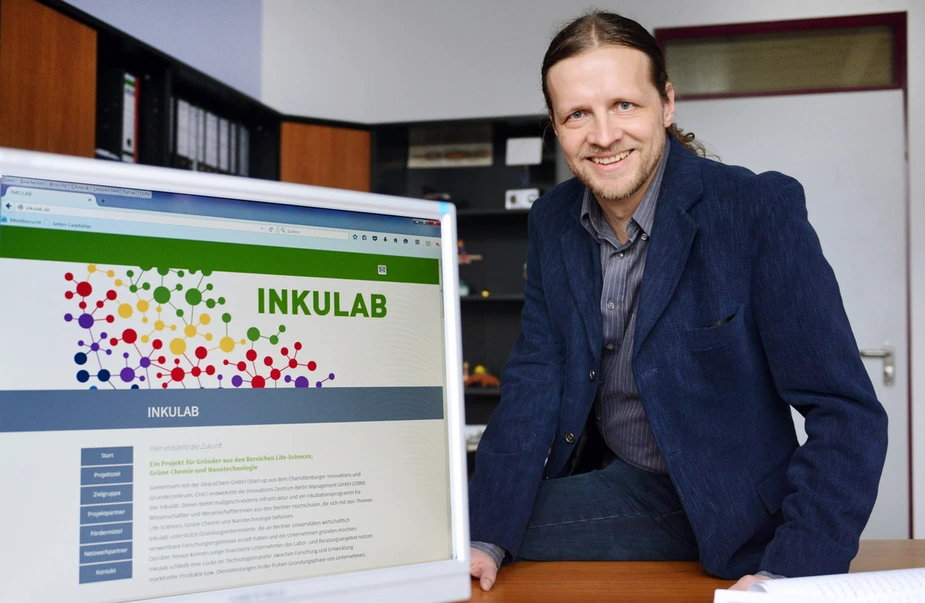Incubation programme for university researchers
Support for university researchers in the life sciences, green chemistry, and nanotechnology
The subject of entrepreneurship has long been a course of study. All of Berlin’s universities have set up a start-up service. This advises graduates and postgraduates who have published commercially exploitable research results and now wish to set up business. For the purpose of extending this systematic support beyond the university confines to practical realisations, a new support programme for university researchers in the life sciences, green chemistry, and nanotechnology has now been launched under the name of Inkulab.
Professor Jan Kratzer of the TU Berlin Center for Entrepreneurship (CfE) can scarcely contain his excitement: “The conditions for start-ups are today better than ever before.” He continued to explain that this hold true for both the financing and the social recognition of new start-ups. By launching Inkulab, the CfE of TU Berlin together with the Adlershof innovation centre Innovations-Zentrum Berlin Management GmbH (IZBM) and the excellence cluster UniCat (Unifying Concepts in Catalysis) can now boast an “incubation programme for university researchers in the life sciences, green chemistry, and nanotechnology” that is financed by the Berlin economy represented by the Chamber of Industry and Commerce (CIC) as part of the initiative “Promotion of Educational Projects”. This programme bridges a gap in the transfer of technology between research and development of marketable products and services in the early start-up phase of companies. IZBM Project Manager Ralph Langanke added: “Graduates wanting to set up business are no longer available as soon as they leave the university, its equipment, and its laboratories.”
It is exactly here that this new form of cooperation embodied in Inkulab spans the divide between research and the market. While IZBM running the project introduces its experience from business joint ventures and from its support of innovative companies, TU Berlin will be advising on start-ups and offering personal assistance in project management. The unique promotion by the Berlin economy will secure funding for Inkulab for the next five years.
Inkulab focuses on the life sciences, green chemistry, and nanotechnology because these are expected to deliver the most interesting results. “Green chemistry is booming,” explained Langanke, looking back on his encouraging experience at the Adlershof science location. Moreover, he continued, there are network partners in the background who are further sources of potential support for Inkulab. These include DexLeChem GmbH, Bayer AG, the German chemical industry association VCI, the seed stage investor High-Tech Gründerfonds (HTGF), and Climate-KIC, the EU’s climate innovation initiative of the European Institute of Innovation and Technology (EIT).
According to Langanke, also the supporting advice is geared to the special needs of start-ups in the fields of the life sciences, chemistry, and nanotechnology, including access to corporate and funding networks in addition to continuous coaching. Inkulab offers graduates wanting to set up business and those already furnished with funds a tailored laboratory infrastructure on the Charlottenburg campus including technical laboratory support. New companies can then grow and develop marketable products faster. Inkulab has been organised as a long term project beyond this initial focus and is also open to start-up projects from other universities, also outside of Berlin.
By Klaus Oberzig for Adlershof Special
<link inkulab/>www.adlershof.de/inkulab/</link> (in German)
